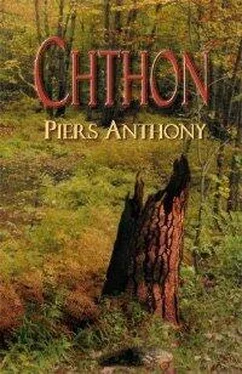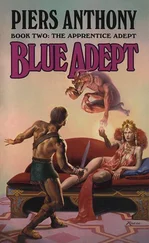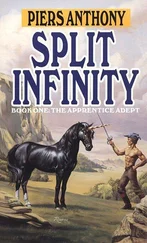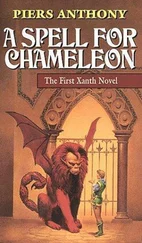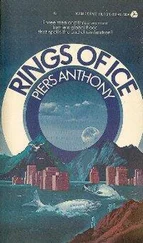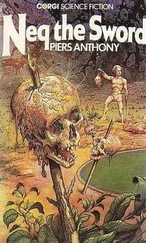Piers Anthony - Chthon
Здесь есть возможность читать онлайн «Piers Anthony - Chthon» весь текст электронной книги совершенно бесплатно (целиком полную версию без сокращений). В некоторых случаях можно слушать аудио, скачать через торрент в формате fb2 и присутствует краткое содержание. Город: 1967, Издательство: Ballantine, Жанр: Фантастика и фэнтези, на английском языке. Описание произведения, (предисловие) а так же отзывы посетителей доступны на портале библиотеки ЛибКат.
- Название:Chthon
- Автор:
- Издательство:Ballantine
- Жанр:
- Год:неизвестен
- Город:1967
- ISBN:нет данных
- Рейтинг книги:5 / 5. Голосов: 1
-
Избранное:Добавить в избранное
- Отзывы:
-
Ваша оценка:
- 100
- 1
- 2
- 3
- 4
- 5
Chthon: краткое содержание, описание и аннотация
Предлагаем к чтению аннотацию, описание, краткое содержание или предисловие (зависит от того, что написал сам автор книги «Chthon»). Если вы не нашли необходимую информацию о книге — напишите в комментариях, мы постараемся отыскать её.
Nominated for the Hugo Award for Best Novel in 1968.
Chthon — читать онлайн бесплатно полную книгу (весь текст) целиком
Ниже представлен текст книги, разбитый по страницам. Система сохранения места последней прочитанной страницы, позволяет с удобством читать онлайн бесплатно книгу «Chthon», без необходимости каждый раз заново искать на чём Вы остановились. Поставьте закладку, и сможете в любой момент перейти на страницу, на которой закончили чтение.
Интервал:
Закладка:
His mind and body recoiled from the contact, but Aton understood too well the consequence of delay. He picked up the burst container and carried it into the refrigerated hold. The Captain stood in the doorway and sprayed him intermittently with foam, alternating with shots at the stacked boxes in Seven. The Taphid was not dangerous while frozen—but the margin was thin. If the hydrant failed—
Aton hurried.
He cleaned up in the Captain’s apartments. He could not afford to be questioned about the nature of his duty at Hold Seven, and his uniform, forgotten in the rush, had been soaked in foam. There were also certain other matters to discuss before they parted company.
He emerged from the lavatory to discover the Captain reclining in a simple dress. Her hair was unbound and hung in dull-brown tresses. She looked young, too young to be capable of the nerve and power he had seen. Appearance was illusion; she was tough, and there was a battle to come. It would be fatal to let her pose undermine him.
Aton evaluated his assets: he had done her a service that could very well have saved the ship, and he had information that could force her resignation from the merchant service. But she was still the captain, with a captain’s powers, and had similar goods on him. Stalemate, unless one of them made a mistake. Or lost his nerve.
“Sit down, Aton,” she said, indicating a place on the couch beside her. Her voice was soft, almost musical. She was, he realized with a start, playing up to him. Was she in search of more than a handyman? Or had she coolly elected to use sex appeal to improve her position? What were her limits?
“The lay system,” she said, beginning the fencing, “is a most convenient method for the arrangement of equitable remuneration for the members of a merchant voyage.”
It was. The system had been borrowed from the practice of ancient whaling and sealing ships on old Earth. The members of the crew received, in lieu of pay, a certain share of the profits. Fiftieth lay represented one fiftieth of the total, and so on. Even a two-thousandth lay could come to an attractive figure, if the voyage was good. Every crewman had an interest in the economic welfare of the enterprise.
Aton nodded and applied the precept of best defense. “Shipment of Taphids must remunerate well indeed.”
She smiled. “The owners, of course, take second lay—half the profit.”
“What lay does the Taphid take?”
The Captain refused to give way. The Jocasta’s lays go on down to four-thousandth for the recruit crewman—”
“Two-thousandth, for experienced machinists,” Aton said, moving closer. “But sometimes there are hazardous duties—”
“Fractional lays have to be figured at every port—”
“And the refrigeration checked—”
“In case a crewman resigns and demands his share—”
“Or his next-of-kin demands it—”
Her eyes were gray, almost green. “Therefore the lay roster is a comprehensive manual identifying every person on the ship.”
“And all legal cargo.” Her hair seemed brighter, coppery.
“Possession by unauthorized persons is felonious—”
“As is shipment of the maggot,” Aton finished.
Her lips were firm and close. “However—” she said.
Aton kissed her.
He moved into it shrewdly, conscious of his power over this woman, prepared to complete the tacit understanding by whatever token was required. He knew that something more than mutual liability was in order; neither one could allow the other to go forth with damning intent. But this was no more than the intellectual machination of survival. On the emotional level his heart was weighed by the disappointing search for the minionette—if, indeed, she existed as such. The Captain interested him only as a complication, not as a woman.
But a strange fire took him as his lips touched hers. What had been calculated art became guileless reality. He wanted her as the woman.
She twisted free. “Why did you do it?” she asked.
Aton suppressed the frustration of sudden rejection and chose to interpret the question as business. “The lay roster? Call it the same reason you smuggle Taphids.” The debate had no interest for him now. He was angry, angry that he could be aroused and cut off so readily. But what he had said to her was the truth: their understanding did not require that their deeper motives be advertised. The two of them had a balance of a sort. It had to remain.
She leaned toward him, applying the lure again. What was the matter with her? He had to admit it was effective; already the yearning for her was reappearing. This was no woman to trifle with. He had never been subjected to such a campaign, never been susceptible to it. He declined to play the game, this time; he would not kiss her again.
“What is it that you wear,” she asked, “in your hair?” There was a slight pause in her question that disturbed him. She had been intending to say something else, or perhaps to say it in a different way. He had assumed that the slight affectation in her speech was a function of rank—but she was not playing Captain with him now, and it remained.
He took down the plant. “This is my hvee. It lives on air and love—its love for its companion. If it were to be taken from me, it would die.”
She lifted it from his hand. “I have heard of the hvee fable,” she murmured, studying it. “Charming.”
Again Aton was angry, unreasonably. He had thought the Taphid a fable, until this day. It was not surprising that others did not give credence to the unique property of the hvee. “I’ll demonstrate,” he said, taking it back. He set it on a table across the cabin and stepped back.
The hvee held its bloom for a moment. Then its leaves began to wilt. Aton returned quickly and picked it up, and strength came back to it, making the plant green and fresh and whole again. “No fable.”
The Captain’s eyes were bright. “What an enchanting liaison,” she said. “Your mother gave it to you.”
Aton’s jaw tightened. “No.”
She touched his hand, smiling. “I hurt you.”
“No!” But beneath her understanding gaze, he felt the need to justify himself.
“My father,” he said, “married a girl of the Family of Ten. She lived with him two years, and the hvee flourished as never since. She was kind and she was loving and she died in childbirth.”
The Captain kept her hand on his. “I do not need to know, Aton.”
But now he needed to tell her. “After that, Aurelius went to space. His cousin, Benjamin Five, acted as caretaker of the farm, so that the hvee would not die. Aurelius traveled to far planets, trying to forget. His ship put down for emergency repair on an unidentified planet. He—associated with a native girl, and he took her with him when they left. He brought her to Hvee.”
The Captain gazed into his troubled eyes. “It is not necessary to—”
“She stayed with him just one year—and deserted him. I suppose she returned to her backwoods planet. Aurelius did not travel again; he farmed the hvee and brought me up alone.”
“But she gave him the strength to continue—”
“She did not love him!” Aton shouted, casting off her hand. “She left him. No Hvee daughter would have done that. And I had no mother, real or step.”
“Perhaps she left him because she loved him,” the Captain said. “Could you, could you not understand that?”
“No!”—raising his hand as if to strike her—“If I ever meet that woman, I will kill her. And I claim my lineage from the Family of Ten. From the woman that was worthy. Ten!”
“So vehement!” But the Captain changed the subject. In thirty-six hours I will show you where the Taphids are delivered. Now go, quickly.”
Читать дальшеИнтервал:
Закладка:
Похожие книги на «Chthon»
Представляем Вашему вниманию похожие книги на «Chthon» списком для выбора. Мы отобрали схожую по названию и смыслу литературу в надежде предоставить читателям больше вариантов отыскать новые, интересные, ещё непрочитанные произведения.
Обсуждение, отзывы о книге «Chthon» и просто собственные мнения читателей. Оставьте ваши комментарии, напишите, что Вы думаете о произведении, его смысле или главных героях. Укажите что конкретно понравилось, а что нет, и почему Вы так считаете.
